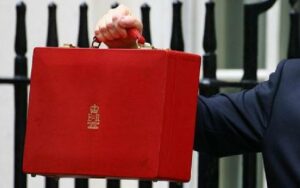The government’s EV Charging Infrastructure Strategy will help to make transitioning to zero emission fleets a reality for logistics businesses, says Logistics UK.
The plan, which aims to ensure commercial vehicles have access to public chargepoints, will mandate that these points have high standards of reliability and will address current barriers – including network capacity, charging costs and access to a sufficiently broad recharging network across the strategic road network – to help the road transport sector decarbonise in confidence.
 Denise Beedell, Public Policy Manager at Logistics UK comments: “For some time now, Logistics UK’s members have called for more equitable ways of funding the necessary expansion of the UK’s electricity capacity to support the decarbonisation of the UK’s commercial vehicle fleets.
Denise Beedell, Public Policy Manager at Logistics UK comments: “For some time now, Logistics UK’s members have called for more equitable ways of funding the necessary expansion of the UK’s electricity capacity to support the decarbonisation of the UK’s commercial vehicle fleets.
“We are very pleased to see the strategy address this significant barrier to improve the infrastructure required for the electrification of commercial vehicle fleets as logistics businesses work to reach net zero as soon as possible.
“We look forward to seeing the details of how the electricity network will be transformed to ensure cost effective and timely connections this spring, and the Ofgem-Government EV Smart Charging Action Plan this summer.”
Fuel Duty Cut
Meanwhile, Logistics UK says the government’s decision to cut fuel duty will help logistics businesses to afford to keep supplying the nation with the goods it needs in the face of increasing fuel prices and other inflationary pressures.
 Comments Elizabeth de Jong, Director of Policy at Logistics UK: “With average fuel prices reaching the highest level on record and rising inflation, there has been an unstainable burden on logistics businesses which operate on very narrow margins of around 1%; the Chancellor’s decision will help to ensure operators can continue to afford supplying the nation with all the goods it needs, including food, medicine and other essential items.
Comments Elizabeth de Jong, Director of Policy at Logistics UK: “With average fuel prices reaching the highest level on record and rising inflation, there has been an unstainable burden on logistics businesses which operate on very narrow margins of around 1%; the Chancellor’s decision will help to ensure operators can continue to afford supplying the nation with all the goods it needs, including food, medicine and other essential items.
“Fuel is the single biggest expense incurred by logistics operators, accounting for a third of the annual operating cost of an HGV.
“The cut in fuel duty of 5ppl will result in an average saving of £2,356 per year per 44-tonne truck; this move will help to strengthen the UK’s supply chain during a time of ongoing financial and operational challenges.”
Logistics UK wrote to Rishi Sunak MP, the Chancellor of the Exchequer, on 10 March 2022 urging for a cut in fuel duty.















